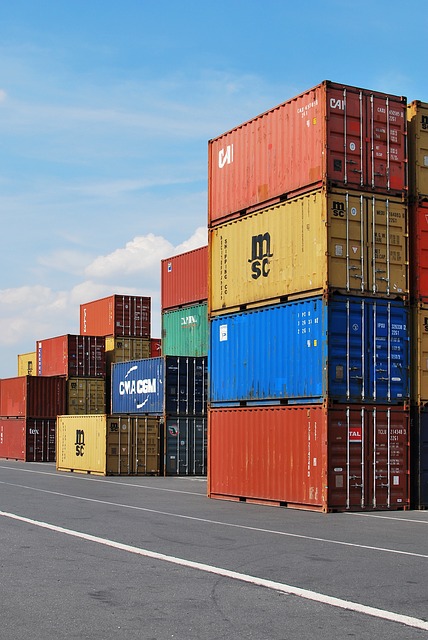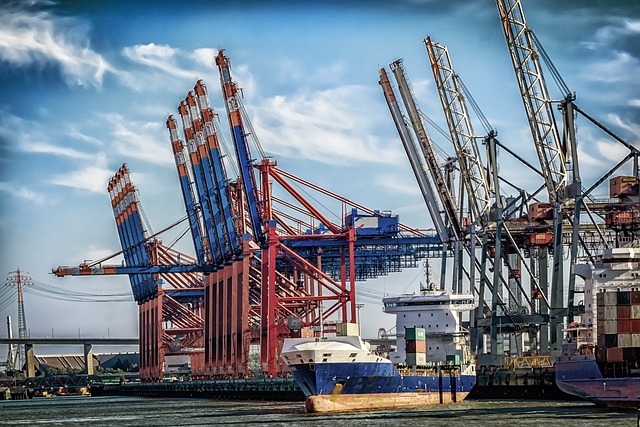Customs and Trade Documents UK translation services are essential for international trade, ensuring compliance with regulations and streamlining goods clearance. Accurate translations, provided by professionals knowledgeable in UK customs terminology, prevent delays, penalties, and legal issues. Key factors to consider when selecting a service include specialized knowledge, accuracy, consistency, and adherence to industry standards like ISO 17100. Technology, including advanced machine translation tools, has enhanced these services, offering quick, cost-effective solutions while maintaining quality. Case studies demonstrate the impact of accurate translations on UK import/export compliance, with successful examples from food importers and global logistics firms. Post-Brexit regulatory changes further emphasize the importance of LSPs staying updated and utilizing best practices to facilitate cross-border trade efficiently.
In today’s globalised trade landscape, seamless communication is key. Reliable translations for UK customs filings are essential for facilitating international trade, ensuring compliance, and streamlining processes. This article delves into the intricacies of UK customs requirements, highlighting the critical role accurate translations play in navigating complex documentation. We explore key considerations when choosing translation services, common challenges, best practices, and the impact of technology, drawing on case studies to demonstrate successful implementations. Understanding these aspects is vital for businesses aiming to thrive in the UK market.
- Understanding UK Customs Filings and Their Language Requirements
- The Role of Accurate Translations in Facilitating Trade
- Key Considerations When Choosing a Translation Service for Customs Documents
- Common Challenges in Translating Customs and Trade Documentation
- Ensuring Quality and Consistency in UK Customary Language
- Best Practices for File Preparation Before Translation
- Technology's Impact on Efficient Customs Translation Services
- Case Studies: Successful Translations for UK Import/Export Compliance
- Regulatory Updates and Their Implications for Language Service Providers
Understanding UK Customs Filings and Their Language Requirements

UK customs filings are a vital part of international trade, ensuring compliance with regulations and facilitating smooth movement of goods. These documents include a range of customs and trade papers, each with specific language requirements. Accurate and reliable translations are essential for businesses navigating the complexities of cross-border transactions.
Customs and Trade Documents UK translation services play a crucial role in ensuring these filings are correct and complete. With precise translations, businesses can avoid costly delays, penalties, or even legal issues that may arise from inaccurate documentation. Professional translators familiar with UK customs terminology and regulations are key to meeting these language requirements, facilitating efficient trade, and upholding the integrity of the UK’s customs processes.
The Role of Accurate Translations in Facilitating Trade
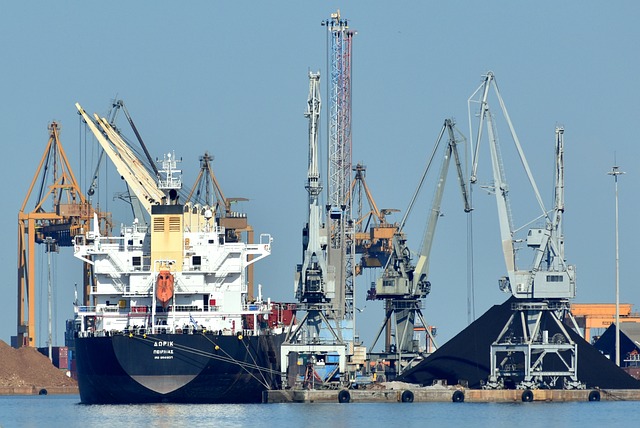
Accurate translations play a pivotal role in facilitating smooth trade operations for businesses navigating the intricate world of UK customs and trade documents. In an international marketplace, where goods and services cross borders, reliable translation services become indispensable tools. They ensure that all paperwork, from commercial invoices to shipping manifests, is correctly interpreted, minimizing delays and potential issues at customs checkpoints.
By enlisting professional UK translation services, businesses can ensure their documentation adheres to the necessary standards and regulations. This process involves translating critical information accurately and consistently, bridging any linguistic gaps that might otherwise hinder trade. Well-executed translations enable efficient clearance of goods, reduce the risk of errors or misunderstandings, and foster a seamless flow of commerce, ultimately contributing to the success and growth of international businesses operating within the UK market.
Key Considerations When Choosing a Translation Service for Customs Documents

When selecting a translation service for customs documents, several key considerations come into play. Firstly, ensure the provider specialises in translating Customs and Trade Documents UK. This requires an understanding not just of language but also of the specific terminology and regulations within the UK customs framework. Reputable firms will have experience handling such documents, demonstrating their competence through case studies or client testimonials.
Secondly, accuracy and consistency are paramount. Customs translations must be precise to avoid delays or penalties. Look for translation services that employ qualified translators with expertise in legal or commercial fields. Additionally, request samples of their work to assess quality and adhere to industry standards, such as ISO 17100.
Common Challenges in Translating Customs and Trade Documentation
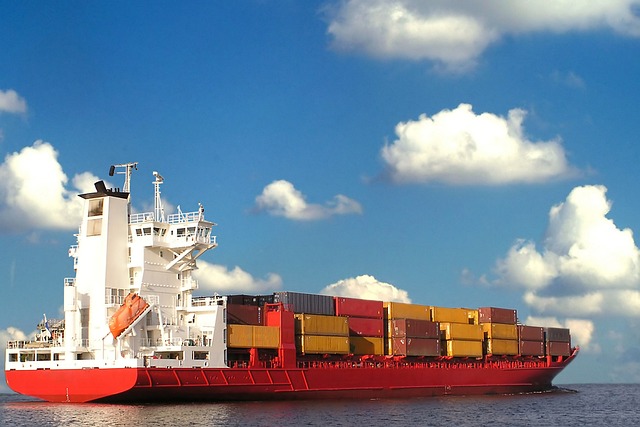
When it comes to customs and trade documents in the UK, accurate translations are paramount for seamless operations. However, navigating the complexities of these documents presents several challenges. For instance, terminology varies widely between industries, requiring translators to possess specialized knowledge. Misinterpretations can lead to costly delays or even legal issues, as a simple mistake in a regulatory document may have significant consequences.
Moreover, trade documentation often involves intricate legal and technical language, necessitating precision and an in-depth understanding of both the source and target languages. The dynamic nature of customs regulations further complicates matters, as new terms and codes emerge regularly, demanding up-to-date knowledge from translators to ensure compliance. Therefore, relying on professional UK translation services specializing in customs and trade documents is essential to mitigate these challenges.
Ensuring Quality and Consistency in UK Customary Language

Ensuring high-quality and consistent translations for customs and trade documents is paramount in the UK, where clear communication plays a vital role in efficient trading processes. Professional translation services dedicated to UK customs language are essential to navigate the complex terminology and regulatory requirements of international trade. These services employ experts well-versed in both business and legal terminologies, guaranteeing precise translations that align with UK customs and import regulations.
Consistency is key when dealing with customs filings, as it minimizes errors and delays. Reputable translation companies offer standardized approaches, ensuring that all documents are handled with precision and adherence to industry standards. This includes keeping up with updates in UK customs legislation, ensuring that every translated document reflects the latest changes, thereby facilitating smoother trade across borders.
Best Practices for File Preparation Before Translation

When preparing customs and trade documents for translation, adherence to best practices ensures accuracy and efficiency. Start by ensuring all paperwork is up-to-date and complete, as any missing or incorrect information can lead to delays at UK borders. Organise your files digitally, with a clear folder structure, making it easy for translators to navigate and access the necessary documents quickly.
Additionally, maintain consistency in terminology throughout the documents. Use standard industry jargon and abbreviations to facilitate translation and avoid confusion. Collaborate with experts or use glossaries to define specific terms related to customs and trade, guaranteeing precise translations that align with regulatory requirements.
Technology's Impact on Efficient Customs Translation Services

In today’s digital era, technology has revolutionized customs and trade documents UK translation services. Advanced machine translation tools coupled with artificial intelligence are now capable of providing quick and accurate translations for a wide array of commercial languages. This not only streamlines the process but also reduces costs and turnaround times, making it easier for businesses to navigate complex international trade regulations.
Moreover, these innovative technologies enable round-the-clock accessibility, ensuring that customs filings can be translated promptly without compromising on quality. With real-time updates and seamless integration into existing systems, modern translation services offer a dynamic solution for UK businesses looking to enhance their efficiency and maintain competitive advantages in the global market.
Case Studies: Successful Translations for UK Import/Export Compliance

Successful case studies highlight the critical role of accurate translations in UK import/export compliance. For instance, a leading food importing company faced challenges with customs authorities due to inconsistent document translations. They partnered with a reliable UK translation service, providing professional translators specializing in customs and trade documents. The result? Seamless communication with UK Border Force, faster clearance times, and reduced costs, ensuring their business operations remained compliant and efficient.
Another notable case involves a global logistics firm that needed to expand its operations into the UK market. Accurate translations of complex commercial documents were essential for navigating customs procedures. They engaged a specialized translation service, resulting in precise interpretations of contracts, invoices, and shipping papers. This enabled smooth interactions with local authorities, avoiding potential delays and penalties, and facilitating a successful market entry strategy. These examples demonstrate the impact of high-quality UK translation services on ensuring compliance with customs and trade document requirements.
Regulatory Updates and Their Implications for Language Service Providers
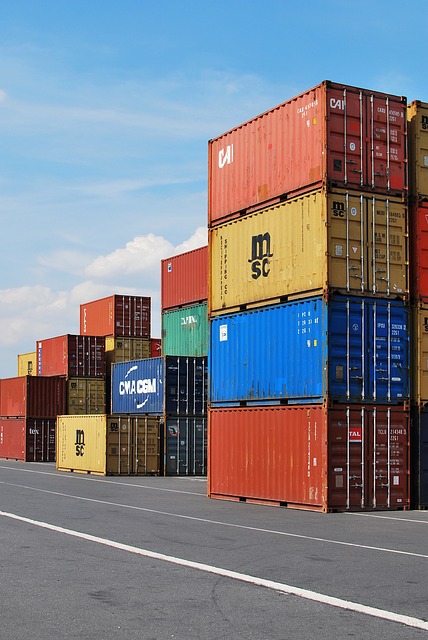
Regulatory changes in the UK, particularly regarding customs and trade documents, have significant implications for language service providers (LSPs). As the UK continues to adapt to new trade agreements post-Brexit, LSPs must stay abreast of updates to ensure accurate and compliant translations. These regulatory updates often introduce new terminology and specific requirements that can impact the overall translation process. For instance, the introduction of new customs codes or classifications necessitates a deep understanding of both languages and the intricate nuances within specific industries.
LSPs play a critical role in facilitating smooth trade across borders by providing reliable UK customs and trade documents translations. They must be adept at interpreting and conveying complex regulatory information accurately to avoid potential delays or penalties. Staying aligned with industry best practices, investing in continuous professional development for translators, and utilizing advanced translation tools can help LSPs meet the evolving demands of this dynamic regulatory landscape.
In conclusion, reliable translations of customs and trade documents are pivotal for seamless UK import/export operations. Understanding the nuances of language requirements, choosing the right translation service, and leveraging technology ensures compliance and facilitates efficient trade. By adhering to best practices in file preparation and staying informed about regulatory updates, businesses can navigate the complexities of UK customs with confidence, enhancing their global trading capabilities. Effective UK translation services play a game-changing role in fostering international trade by providing clear communication and accurate documentation.
